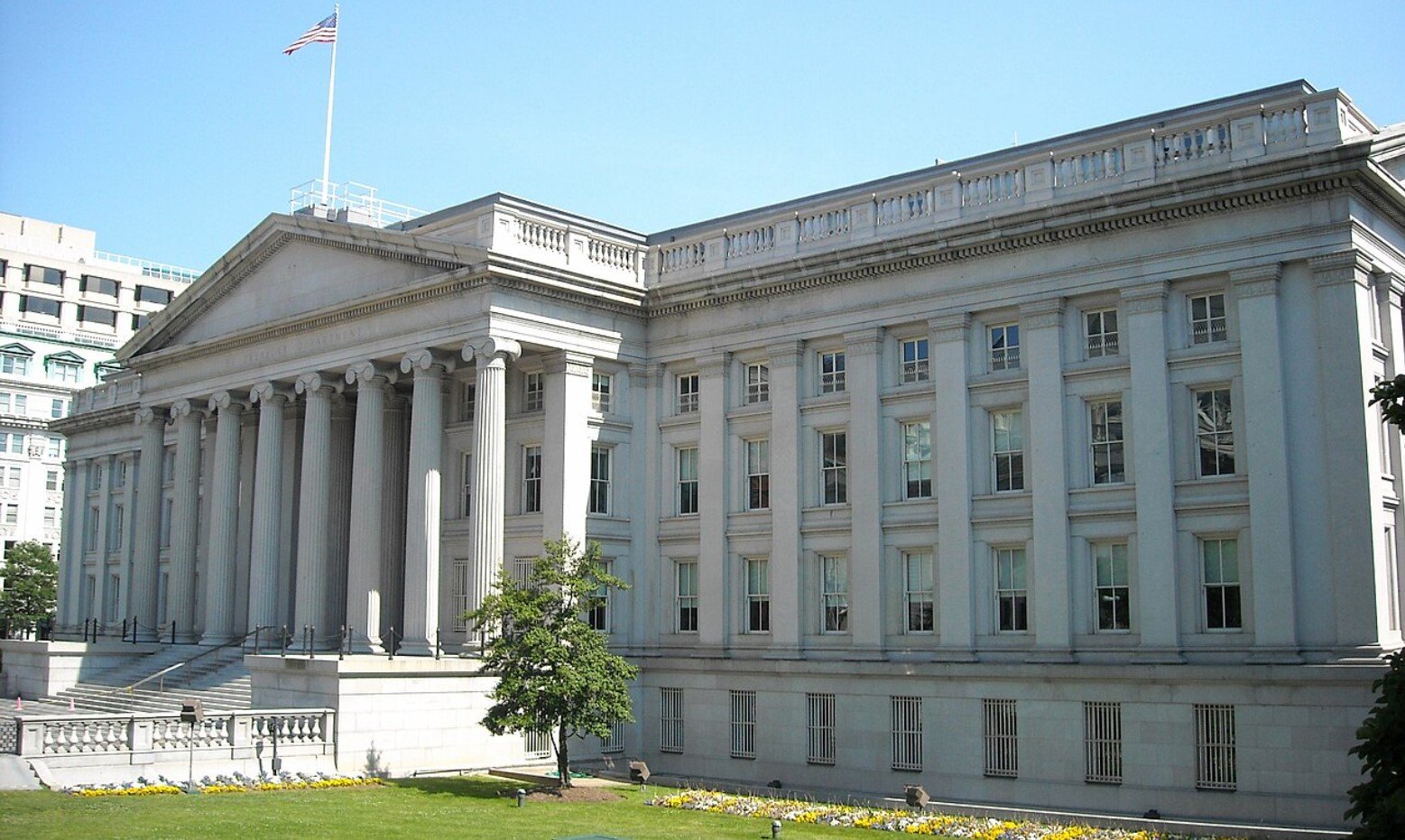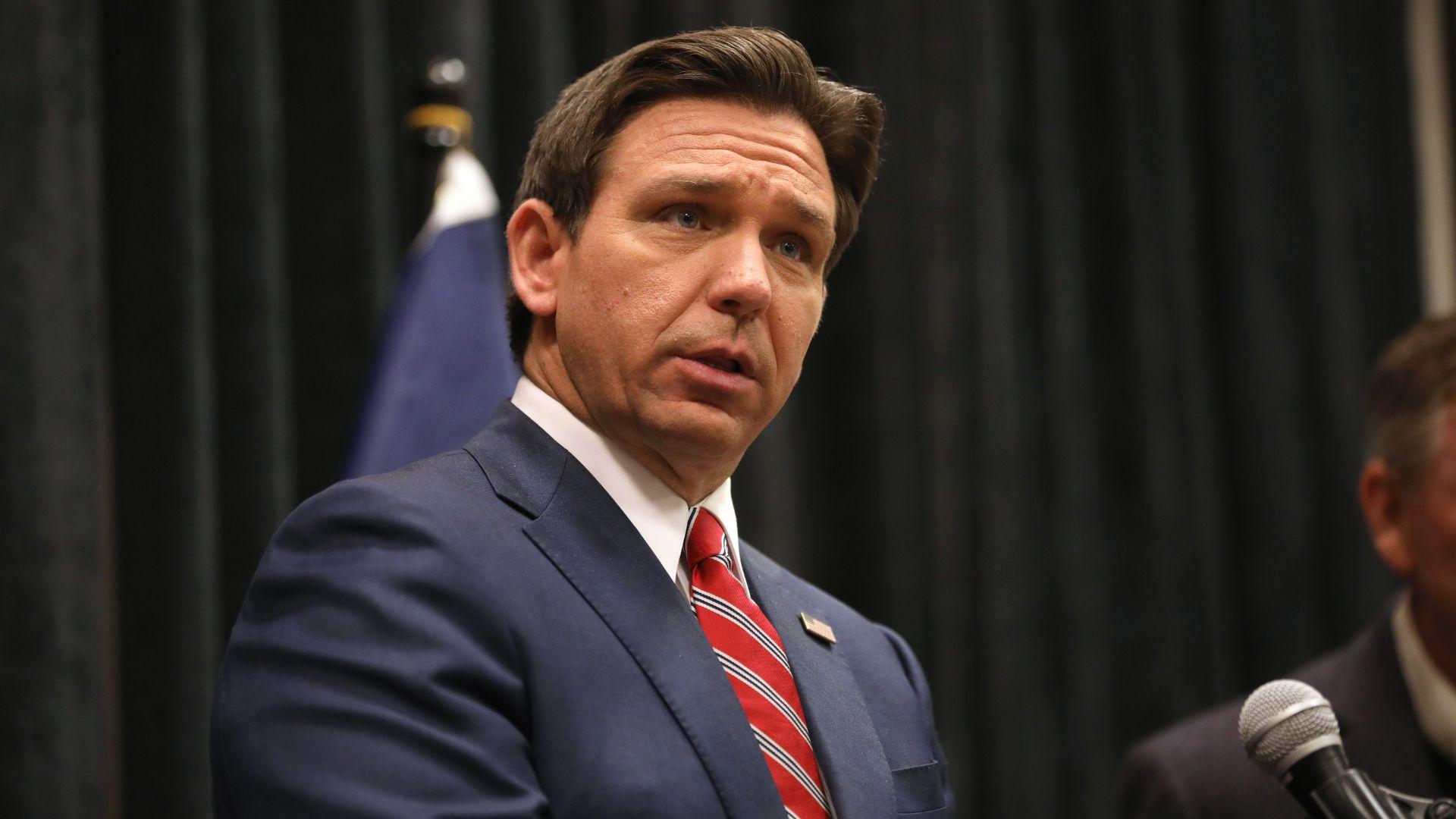The Treasury Department is concerned that conservative state laws pushed by Florida Gov. Ron DeSantis and championed as “anti-woke” could have worrying widespread consequences.
Ostensibly, the laws are in place to restrict banks from making decisions based on non-financial factors. However, the Treasury is concerned that they could hamper law enforcement and potentially even pose a national security threat.
The Treasury’s Concerns

The Treasury Department sent a letter to lawmakers detailing their concerns about potentially dangerous legislation. In it, they singled out a law signed by Florida Gov. Ron DeSantis.
The law states that allowing banks to consider non-financial factors when doing business would be an “unsafe and unsound practice.” The letter from the Treasury concludes that laws like this actually “create uncertainty and may inhibit” national security efforts.
DeSantis’ Legislation

DeSantis is one of many Republicans who have sought to prevent environmental and social standards from playing a role in investing.
They believe that “woke” practices like considering environmental, social and corporate governance issues in banking could lead to unfair discrimination based on political beliefs and cause damage to legitimate businesses.
Other States Following Suit

Florida, where DeSantis serves as governor, put legislation in place to prevent banks from making decisions based on non-financial factors.
Though not mentioned in the letter from the Treasury, Tennessee also recently enacted a similar law. State legislatures in Arizona, Georgia, Iowa, Indiana, Idaho, Louisiana, Kentucky and South Dakota also have measures along the same lines under consideration.
Protecting Conservative Business Interests

DeSantis backs the law being called into question by the Treasury Department, saying it helps protect business interests and prevent discrimination.
He claims the legislation is necessary to protect the access that conservative groups and industries like the firearms industry have to the financial sector. He argues that this protection is needed as such organizations have, at times, had accounts frozen or closed.
The Treasury Takes a Different View

The Treasury disagrees with DeSantis’ assessment. In their letter to lawmakers, they assert that legislation like the Florida law could undermine the work of federal agencies.
They highlight “the risk that international drug traffickers, transnational organized criminals, terrorists, and corrupt foreign officials will use the U.S. financial system to launder money, evade sanctions, and threaten our national security.”
The Treasury Acknowledging Wider Concerns

The Treasury Department authored the letter in response to a request from a number of congressmen, namely Rep. Josh Gottheimer, D-N.J., Rep. Blaine Luetkemeyer, R-Mo. and Rep. Brad Sherman, D-Calif.
Rep. Gottheimer expressed his pleasure that the Treaury shares their concerns, saying in a statement: “To any states that are considering similar laws, I urge them to think twice before putting America’s national security at risk.”
Not the Only Criticism DeSantis Is Facing

This isn’t the only move from Florida’s governor that has attracted negative attention and come under criticism.
Recently, DeSantis massively cut arts and culture grants in the state, vetoing over $32 million in funding for arts projects and organizations in Florida. This drew criticism from prominent figures in Florida’s artistic community.
Widespread Criticism of His Funding Cuts

Jorge Pérez, Miami real-estate mogul and renowned art collector, was among those to voice their displeasure at the move by DeSantis.
He slammed the arts cuts as a “horrible message” for the governor to send and labeled it as a detriment to any attempts for Miami to be seen as a “serious city.”
DeSantis’ Justification

There is a somewhat familiar ring to DeSantis’ justifications to these arts cuts when compared to his defence of the banking legislation protecting conservative business interests.
DeSantis stated he was “standing up for taxpayers” with the cuts, protecting the public from “inappropriate use of taxpayer dollars” and shielding people from “sexual festivals.” There is an almost laughable conservatism to this sentiment when one considers that one institution to suffer from the cuts was the highly traditional Miami City Ballet.
Other Governors Rebelling Against Environmentally Conscious Policies

DeSantis is not alone as a state governor using his office and his influence to push conservative Republican agendas through legislation.
Virginia Gov. Glenn Youngkin is facing backlash for unilaterally using his powers to roll back environmentally conscious legislation aimed to tackle vehicle emissions and withdrawing the state from the Regional Greenhouse Gas Initiative.
A Potentially Dangerous Move From DeSantis

Gov. DeSantis is no stranger to making decisions regarding the governance of Florida that are met with criticism. Always, his justification seems to be that he is protecting more conservative interests in the face of “wokeness.”
But this isn’t a case of more liberally-minded individuals criticizing a conservative who doesn’t value the arts. This is the U.S. Treasury saying his legislation poses a potential threat to national security. It’s hard to justify that it’s worth protecting conservative business interests at the expense of national security.
